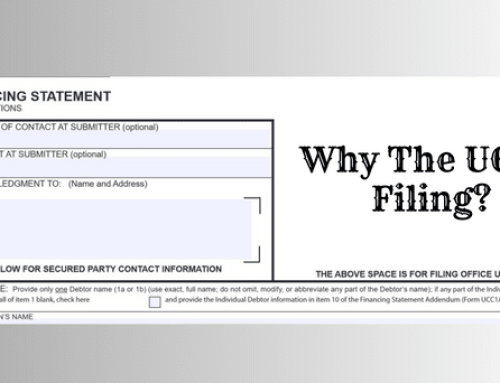When it comes to estate planning, the distinctions between revocable and irrevocable trusts play a crucial role in shaping the effectiveness of your plans. In this article, we’ll explore how these trust types can influence and strengthen your estate planning strategy.
It’s important to note that the information provided here is for educational purposes only. NerdWallet, Inc. does not offer advisory or brokerage services and does not provide recommendations for buying or selling specific stocks, securities, or other investments. Our evaluations and opinions are independent of any compensation from our partners.
As you navigate the intricacies of estate planning, understanding the nuances between revocable and irrevocable trusts is essential. Let’s delve into how these distinctions can impact your overall estate planning goals.
n the intricate landscape of estate planning, the collaboration between a will and a trust is a common strategy for transferring assets to heirs. However, understanding the fundamental distinctions between the two main types of trusts, namely revocable and irrevocable, is imperative to make informed decisions aligned with your future goals.
Revocable vs. Irrevocable Trusts: Unveiling the Differences
The primary contrast between revocable trusts and irrevocable trusts lies in their malleability. A revocable trust allows for the modification of its terms and stipulations at any time, offering a dynamic approach. On the other hand, an irrevocable trust locks in its terms upon setup, and any changes necessitate unanimous agreement from all beneficiaries.
Revocable Trusts
Benefits:
- Maintain Control of Assets: Grantors retain control over their assets, allowing for adjustments as circumstances evolve.
- Protection in Incapacity: Offers a layer of protection by facilitating a smooth transition of assets in case of the grantor’s incapacity.
- Avoids Probate: Assets within a revocable trust can sidestep the probate process, streamlining the asset distribution.
Drawbacks:
- No Tax Benefits: Unlike irrevocable trusts, revocable trusts do not provide direct tax advantages.
- No Protection from Creditors: Creditors may have access to assets within a revocable trust.
Irrevocable Trusts
Benefits:
- Tax Reduction: Structured properly, irrevocable trusts can offer tax advantages, aiding in reducing tax liabilities.
- Protection from Creditors: Assets held in an irrevocable trust are typically shielded from creditors.
Drawbacks:
- Relinquish Control of Assets: Grantors lose control over the assets placed in the trust.
- Limited Flexibility: Once established, irrevocable trusts offer limited flexibility for modifications.
- Complexity: The legal intricacies of irrevocable trusts can be challenging to comprehend and administer.
Conclusion
In the realm of estate planning, the choice between revocable and irrevocable trusts is a pivotal decision that hinges on your financial goals and preferences. While revocable trusts provide flexibility and control, irrevocable trusts offer tax benefits and enhanced asset protection. Consulting with legal and financial professionals can guide you in crafting an estate plan that aligns seamlessly with your unique objectives.
A revocable trust, often referred to as a living trust, revocable living trust, or inter vivos trust, is a flexible legal document that establishes a distinct legal entity. This trust empowers the creator, also known as the grantor, to retitle assets under the name of the trust. The key feature of a revocable trust is its amendable nature, allowing the grantor to make changes, modifications, or even revoke the trust during their lifetime.
In the context of a revocable trust, the grantor takes on the role of selecting a successor trustee. This appointed individual assumes the responsibility of managing the trust’s assets on behalf of the grantor and, ultimately, for the benefit of the named beneficiaries. This arrangement provides the grantor with the flexibility to adapt the trust in response to changing circumstances or estate planning goals. The assets held within a revocable trust commonly include real estate, bank accounts, investments, and other valuable possessions.
Overall, a revocable trust serves as a dynamic tool in estate planning, offering the grantor control over their assets, the ability to avoid probate, and the flexibility to tailor the trust to meet their evolving needs. The inclusion of a successor trustee ensures the seamless transition and management of assets in accordance with the grantor’s wishes.
Benefits of Utilizing a Revocable Trust in Estate Planning
A revocable trust stands out as a versatile and effective estate planning tool, offering several advantages for individuals seeking greater control and flexibility in managing their assets. Here are key benefits associated with the use of a revocable trust:
- Flexibility in Terms and Dissolution
One of the primary attractions of a revocable trust is the grantor’s ability to alter the trust’s terms or dissolve the trust document at any time. This flexibility allows individuals to adapt the trust to changing circumstances, ensuring that the estate plan remains aligned with their evolving goals.
- Immediate Effectiveness
Upon signing and funding the legal document, a revocable trust becomes effective immediately. This is in contrast to a will, which only becomes active upon the individual’s death. The trust can efficiently handle the grantor’s affairs, providing a seamless transition of assets even if the grantor becomes incapacitated.
- Probate Avoidance
Many individuals opt for revocable trusts to bypass the probate process, which can be time-consuming and costly, especially in certain states. By titling assets in the name of the trust, the need for probate is minimized or eliminated, facilitating a quicker and more private distribution of assets to beneficiaries.
- Privacy Preservation
Unlike wills, which become public records upon probate, revocable trusts offer the advantage of maintaining privacy. The details of the trust remain confidential, accessible only to those directly involved, rather than being available for public scrutiny.
Limitations of Revocable Trusts
While revocable trusts offer significant advantages, it’s essential to be aware of their limitations:
- No Tax Benefits
Since the grantor retains ownership of assets within the trust and can modify the trust at any time, there are no direct tax benefits associated with setting up a revocable trust. Tax advantages are typically more pronounced with irrevocable trusts.
- Creditor Claims
Creditors retain the ability to make claims against a revocable trust to recover debts owed by the grantor. Unlike irrevocable trusts, which provide a greater level of asset protection, revocable trusts may not shield assets from creditor claims.
In conclusion, a revocable trust offers unparalleled flexibility and control in estate planning, allowing individuals to tailor their arrangements to suit their needs. However, it’s crucial to weigh the benefits against the limitations and consider individual circumstances when deciding on the most suitable estate planning strategy.
Understanding Irrevocable Trusts: A Comprehensive Overview
An irrevocable trust stands as a steadfast component in estate planning, offering an unalterable structure that carries numerous benefits and specialized types tailored to specific needs. Let’s delve into the core aspects of irrevocable trusts, exploring their definition, types, and the advantages they bring to estate planning.
Definition:
An irrevocable trust is a legal arrangement where the grantor relinquishes the ability to change or revoke the trust. Exceptions allowing modifications are limited and often require unanimous agreement from beneficiaries or a court decree. The trustee, a third party appointed by the grantor, assumes the responsibility of managing the trust once assets are transferred into it.
Types of Irrevocable Trusts:
- Credit Shelter Trust, Bypass Trust, or AB Trust:
- Used by married couples to navigate estate tax on specific assets.
- Assets move into trusts for the surviving spouse’s use but not ownership, facilitating tax-free transfers to heirs upon the second spouse’s death.
- Qualified Terminable Interest Property Trust (QTIP):
- A type of credit shelter trust providing income and property use to a surviving spouse.
- Designed to avoid estate tax, with assets transferring to the final beneficiary upon the surviving spouse’s death.
- Qualified Domestic Trust (QDOT):
- Similar to QTIP but applicable to surviving spouses who are noncitizens.
- Grantor-Retained Annuity Trust (GRAT):
- Minimizes taxes on gifts to heirs by removing assets from the taxable estate.
- The grantor transfers assets, earns income for a specified period, and gifts the remaining asset.
- Qualified Personal Residence Trust (QPRT):
- Similar to GRAT but involves real estate assets.
- Grantor can reside in the property rent-free before gifting it to heirs.
- Spousal Lifetime Access Trust (SLAT):
- A grantor creates a trust for the benefit of a spouse or children, moving assets out of the taxable estate.
- Provides a buffer as beneficiaries can receive distributions to support the grantor.
- Generation-Skipping Trust:
- Directly gives ownership of assets to grandchildren, skipping estate tax for children.
- Subject to a generation-skipping tax and exemption.
- Dynasty Trust:
- Set up to pass assets across generations without estate, gift, or generation-skipping tax implications.
- Spendthrift Trust:
- Established for beneficiaries who may struggle with managing assets independently.
- Special Needs Trust:
- Supports children with disabilities, providing financial assistance while maintaining eligibility for governmental aid.
- Intentionally Defective Grantor Trust (IDGT) or Grantor Trust:
- Allows the grantor to transfer assets, paying income taxes for the trust while excluding them from the estate.
- Irrevocable Life Insurance Trust (ILIT):
- Owns a life insurance policy, with trust beneficiaries receiving the death benefit proceeds.
- Charitable Trust:
- Set up to benefit charities, gaining favorable tax treatment for the grantor.
- Asset Protection Trust:
- Established to shield assets from creditors.
Benefits of Irrevocable Trusts:
- Probate Avoidance and Privacy Preservation:
- Similar to revocable trusts, irrevocable trusts bypass probate, ensuring a streamlined asset distribution process.
- Maintains confidentiality, keeping trust details private.
- Tax Shelter and Reduction:
- Assets within an irrevocable trust are removed from the grantor’s taxable estate, reducing or eliminating estate tax burdens.
- Charitable trusts can provide additional tax breaks.
- Creditor Protection:
- Assets transferred to an irrevocable trust are shielded from creditor claims, offering protection in professions susceptible to lawsuits.
- Government Program Qualification:
- Helps individuals qualify for government programs by shifting assets away, meeting income and asset limits for programs like Medicaid.
In conclusion, irrevocable trusts serve as powerful tools in estate planning, offering tailored solutions for tax efficiency, asset protection, and legacy planning. Understanding the nuances of each trust type allows individuals to craft comprehensive estate plans aligned with their unique financial goals and circumstances.
Exploring the Limitations of Irrevocable Trusts: A Balanced Perspective
While irrevocable trusts offer compelling benefits in estate planning, it’s essential to recognize their limitations and potential challenges. Understanding these drawbacks provides a balanced perspective for individuals considering the use of irrevocable trusts in their estate planning strategy.
- Relinquishing Control and Ownership:
- In opting for an irrevocable trust, the grantor must surrender control and ownership of their assets. The trustee assumes authority, and decisions regarding the trust are made independently. Although a trust protector can be appointed for oversight, the grantor’s direct influence is limited.
- Permanent Beneficiary Designations:
- Once beneficiaries are designated in an irrevocable trust, it becomes challenging to change these allocations. Relationship dynamics or personal circumstances may shift, making it difficult for grantors to adjust beneficiary designations accordingly.
- Inflexibility in Changing Circumstances:
- Life is dynamic, and circumstances change. Grantors may face challenges if they wish to modify beneficiary designations or adjust the terms of the trust due to evolving relationships or shifting financial situations.
- Complexity of Trust Strategies:
- Many irrevocable trusts involve intricate strategies that can be challenging for individuals to comprehend, set up, and administer. The complexity is heightened by the need for separate tax identification numbers and the filing of distinct tax returns for the trust, requiring specialized knowledge.
- Costs Associated with Estate Attorney Expertise:
- Due to the intricate nature of irrevocable trusts, seeking the guidance of an estate attorney is often necessary. While this expertise is valuable, it can also result in additional costs that individuals need to consider in their estate planning budget.
- Potential for Higher Income Taxes:
- While irrevocable trusts can be effective in reducing or eliminating estate taxes, they may be subject to higher income taxes. This tax consideration adds a layer of complexity and requires careful evaluation of the overall tax implications.
Choosing the Right Trust: Seeking Professional Guidance
Given the complexities and considerations involved in choosing the right trust, consulting with a reputable estate planning attorney is paramount. Collaborating with professionals well-versed in trust strategies, alongside financial and tax advisors, ensures a comprehensive understanding of the options available. This collaborative approach empowers individuals to formulate a tailored estate plan that aligns seamlessly with their unique financial goals, balancing the benefits and limitations of different trust structures.
In summary, the key lies in informed decision-making, and professional guidance is instrumental in navigating the intricacies of estate planning and trust selection.








Leave A Comment